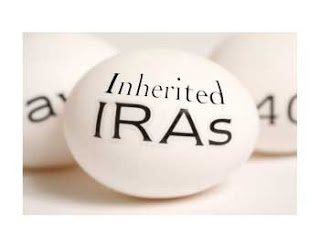Properly preparing for a Bankruptcy filing can be just as important, if not more important, than the filing itself. After all, once a Chapter 7 or Chapter 13 bankruptcy case is filed the Court or Trustee takes a snapshot of your assets and looks at the assets as they are at the time you file and the actions you’ve taken in the days, months, and years prior to the Bankruptcy case.
When we talk about preparing for a Bankruptcy, we are not talking about doing anything fraudulent or illegal. Just as there are things to do before a Bankruptcy filing, there are just as many things not to do.
The first step in preparing for a Bankruptcy is finding a knowledgeable and personable attorney to advise and represent you. Keep in mind that a Bankruptcy case requires significant interaction with your attorney. Unlike other areas of law where you may meet with your attorney and then wait for him/her to do all the work (file a complaint with the court, respond to discovery, prepare for trial, etc.), in a Bankruptcy case you will work closely with your attorney to ensure accurate information is provided to the court. So be sure you feel comfortable with the attorney you choose to represent you.
After retaining an attorney, here are just a few things to consider when preparing to file Bankruptcy:
- Stop Paying Unsecured Debts (i.e. credit cards, unsecured loans, etc.) – There are two reasons to stop paying unsecured debts. First, it saves you money! If you are going to be discharging all or most of your unsecured debt then there is no reason to pay the debts leading up to the bankruptcy filing. Use the funds to pay for an attorney or concentrate on more important expenses (rent, food, utilities). Second, certain payments to creditors prior to a bankruptcy can be pulled back into the Bankruptcy estate by the Trustee as a preferential payment. Where a payment on a credit card is being pulled back into the Bankruptcy estate, it may not be a concern to you. However, when the Trustee threatens to sue your relative for the $3,000 loan you paid back six months prior to the Bankruptcy there is a bigger worry. Be sure to stop paying back any and all loans from family members or friends and treat them just like you treat the credit card companies. Although you may consider your family members different from a credit card company, the Bankruptcy Court does not. The Bankruptcy Court sees all of your creditors equally. If you think you have made a preferential payment be sure to discuss this with your attorney. Remember, this does not apply to your current bills so continue to pay the necessities like rent or mortgage, utilities, cell phone, car payments, etc.
- Stop Using Credit Cards – Once you decide you are going to be filing for Bankruptcy relief, cut up any and all credit cards that you have. You do not want to use any credit cards prior to the Bankruptcy filing. Using a credit card with no intention of paying the debt back is considered fraud and the debt can be determined nondischargeable (meaning you’ll still owe it after the Bankruptcy). In fact, certain use of a credit card right before a bankruptcy will be presumed to be nondischargeable (See 11 U.S.C. §523(2)(C)(i)). This applies just the same to loans, payday loans, or cash advances so be sure to avoid all of these leading up to your filing.
- What To Do With Your Car? – One crucial consideration in a Bankruptcy case is what to do with your car. If you have been considering purchasing or financing a new car it may be best to do so before filing. Considerations need to be given to your current income, expenses, available exemptions, and your credit score before and after filing. Sometimes it is beneficial to finance a car before filing while other times it is beneficial to wait until after the filing. Further, if you currently own a car that is severely underwater with a high monthly payment, you may want to consider surrendering the vehicle in the Bankruptcy (allowing you to walk away from the car debt free) and finding a new vehicle within your price range.
- Exemption Planning – Exemption planning is likely the most important aspect of preparing for a Bankruptcy filing. This is because any property that is not protected by an exemption may be sold by the Trustee to satisfy the claims of creditors. The analysis is highly technical and the risk is large so be sure to consult with an attorney. Exemption planning does not refer to hiding assets or transferring assets out of your name, which should not be done at any time. The phrase exemption planning refers to arranging one’s assets within the state’s exemptions to ensure maximum protection. The court has consistently upheld the Debtor’s use of exemption planning (see In re Stern, (9th Cir. 2003) 345 F. 3d 1036). Exemption planning is used to take assets that are not currently exempted and converting them into assets that are exempted. For example, if prior to filing you are $2,000 over the exemption amount allowed for money in a bank account it would be wise to convert the cash into an asset that has an available exemption. If you own a home and have not maxed out the equity already, you could use the funds to improve the home. If you have not made a retirement contribution for the year you could make a retirement contribution from the excess money. Again, the difference is working within the laws to protect the asset rather than trying to hide the asset.
These are just a few of the considerations that should be made when preparing for a Bankruptcy filing. The attorneys at Calone & Harrel Law Group, LLP offer extensive experience preparing for and filing Chapter 7 and Chapter 13 Bankruptcy cases. If you are considering filing bankruptcy you can contact Calone & Harrel Law Group, LLP to schedule a free thirty (30) minute consultation with a bankruptcy attorney to see if a bankruptcy filing would be appropriate in your given factual situation.




